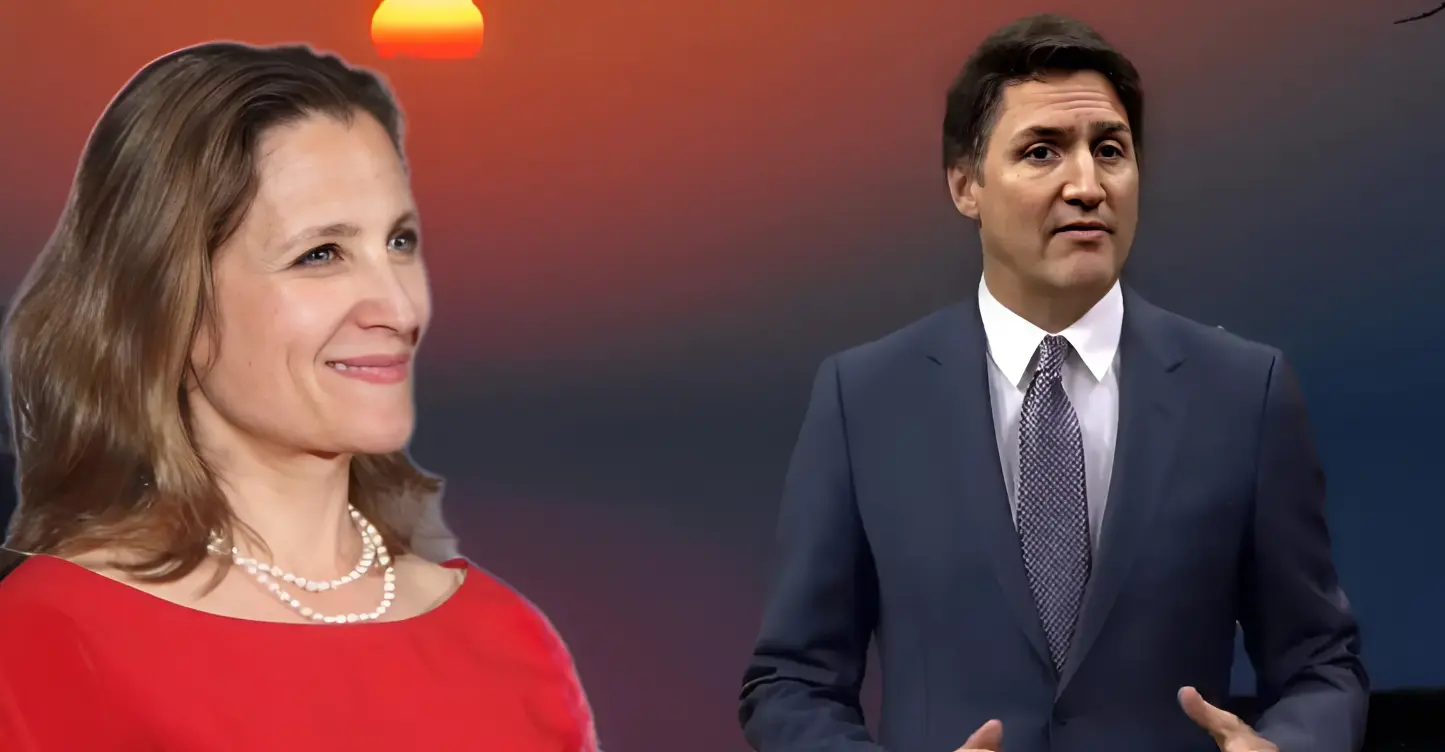Deputy Prime Minister and Finance Minister Chrystia Freeland announced her resignation from the federal cabinet. The decision came just moments before she was scheduled to deliver the government’s fiscal economic statement in the House of Commons. Freeland’s resignation also follows her statement that Prime Minister Justin Trudeau had requested she take on another cabinet role after the release of the statement. However, Freeland decided to step down entirely, rejecting any further position within the government.
The resignation marks a dramatic shift in Canada’s political landscape, with Freeland’s role as Finance Minister having been pivotal during the Trudeau administration, especially amid economic challenges and debates surrounding federal spending. Freeland’s exit comes at a time when the Trudeau government is facing mounting pressure on fiscal matters, including its growing debt and unmet promises on fiscal restraint.
Doubling of the Federal Debt
Freeland’s resignation adds weight to growing concerns about Canada’s economic trajectory under the Trudeau government. Over the past decade, the federal debt has reached unprecedented levels. When Trudeau first assumed office in 2015, the country’s debt stood at approximately $616 billion, accumulated over nearly two dozen prime ministers and a century and a half of governance. However, by August 30 of this year, the federal debt had officially more than doubled to $1.232 trillion—a striking figure that raises questions about the long-term financial stability of the nation.
The growing debt has been exacerbated by government spending initiatives aimed at addressing national security, defense, and social welfare programs. Analysts have criticized the government’s failure to maintain fiscal restraint, a commitment made by Freeland herself in the April 2024 budget. At that time, Freeland had pledged that the deficit would not exceed $40 billion, a promise that now appears increasingly unlikely to be fulfilled.
Despite efforts to keep spending under control, the government has faced external pressures, including the need to bolster defense measures and accommodate costly political deals. For example, Trudeau’s administration has committed to purchasing new military equipment, such as helicopters and drones, to address growing concerns over national security. Additionally, the government’s alliance with the NDP has come at a significant cost, with the implementation of programs like the National Dental Care Plan and the current GST holiday.
Freeland’s resignation raises further questions about the future of the federal government. With two major cabinet positions now vacant—Freeland’s and the recently announced resignation of Infrastructure and Housing Minister Sean Fraser—the path forward remains unclear. In a time of economic uncertainty, political stability will be key for the government to regain public trust.
The timing of Freeland’s resignation is particularly striking given the upcoming fiscal statement. Traditionally, the Finance Minister is the one to present the government’s budget and fiscal updates to Parliament. The question remains: who will step in to take charge of Canada’s finances and address the growing concerns over federal spending?

